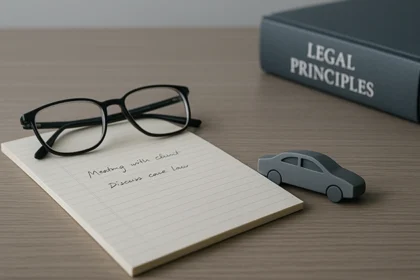Bucks County juvenile lawyers play a significant role in ensuring that the rights and voices of minors are prioritized in custody cases. By employing a blend of empathetic communication and strategic legal acumen, they navigate the intricacies of the juvenile justice system. These attorneys collaborate with social workers and mental health professionals to craft personalized advocacy plans, focusing on rehabilitation and the well-being of their clients. As they work to secure favorable outcomes, one might wonder how these professionals overcome the myriad challenges unique to each case. What strategies do they employ to balance legal obligations with compassionate representation?
Understanding Juvenile Custody Cases
Understanding juvenile custody cases requires a nuanced appreciation of both legal principles and the delicate emotional factors at play. These cases often involve complex intersections of juvenile justice and family law, where the best interests of the youth must be carefully balanced against legal frameworks and family dynamics. In this situation, the role of custody evaluations becomes paramount, acting as an essential tool to guide decision-making processes.
Custody evaluations are thorough assessments conducted by professionals who examine the emotional, psychological, and social factors impacting a juvenile’s life. These evaluations aim to provide the court with an objective analysis to inform their decisions regarding custody arrangements. They consider the child’s needs, the capacity of each guardian to meet those needs, and any potential risks involved in the proposed custodial settings.
Empathy is key in these evaluations, as understanding the unique circumstances of each juvenile case is essential. A strategic approach involves traversing the intricacies of juvenile justice with a focus on rehabilitation and the child’s welfare. Juvenile lawyers in Bucks County, as a result, play a pivotal role in advocating for the most beneficial outcomes for youth, ensuring their voices and needs are adequately represented in custody determinations.
Legal Rights of Youth
In custody cases involving juveniles, it is essential to understand the legal rights afforded to youth to guarantee their best interests are safeguarded. Protecting these rights in court requires a strategic approach that balances legal complexities with the unique needs of young individuals. Steering through the legalities of custody requires a knowledgeable advocate who is empathetic to the challenges faced by youth during these proceedings.
Understanding Juvenile Legal Rights
Although often overlooked, the legal rights of juveniles in custody cases are crucial to guaranteeing fair treatment and justice for youth involved in the legal system. Understanding these rights is critical for fostering an environment where juvenile justice is more than just a concept; it is a practice that protects and empowers young individuals. Juvenile lawyers play an important role in youth advocacy, guaranteeing that minors are not only aware of their rights but also have those rights upheld throughout the judicial process.
Juveniles, like adults, are entitled to certain fundamental rights, including the right to legal representation and the right to be heard in court. However, the complexity of these rights often requires strategic navigation by skilled attorneys who are well-versed in juvenile law. These lawyers must approach each case with empathy, recognizing the unique vulnerabilities and circumstances that can affect young clients.
Furthermore, youth advocacy extends beyond the courtroom. It involves educating families about their legal options, counseling youth on their rights, and working closely with social services to guarantee thorough support. By understanding and upholding juvenile legal rights, Bucks County lawyers help create a juvenile justice system that is both fair and just, safeguarding the future of young lives.
Protecting Youth in Court
Building upon the foundation of juvenile legal rights, protecting youth in court necessitates a proactive approach that is both strategic and empathetic. Juvenile lawyers play an essential role in youth advocacy, ensuring that the unique needs and vulnerabilities of young clients are addressed within the legal system. Recognizing that courtroom challenges can be intimidating for youth, these legal professionals employ strategies that are designed to demystify the process and provide clear guidance.
At the heart of effective youth advocacy is the understanding that minors require a voice that can articulate their best interests and protect their rights. Lawyers must maneuver complex legal frameworks while maintaining a compassionate stance towards their young clients. This involves not only an extensive knowledge of juvenile law but also the ability to communicate effectively with youth, ensuring they feel supported and understood throughout the legal proceedings.
In maneuvering courtroom challenges, juvenile lawyers must remain vigilant in protecting the legal rights of youth by advocating for fair treatment and equitable outcomes. By fostering an environment of trust and respect, these attorneys help young clients engage meaningfully in their cases, ultimately safeguarding their future and well-being within the judicial system.
Navigating Custody Legalities
Steering through the complex legalities of custody cases demands a thorough understanding of the legal rights of youth, where juvenile lawyers must deftly balance legal expertise with empathetic advocacy. In Bucks County, these legal professionals play a vital role in guaranteeing that the youth’s voice is not overshadowed by procedural intricacies. Custody evaluations are a pivotal aspect of these cases, where the best interests of the child must be meticulously assessed. Lawyers must guarantee that these evaluations are conducted fairly, accurately portraying the child’s needs and circumstances.
Moreover, the preparation of legal documentation is another area where precision is paramount. Juvenile lawyers meticulously draft and review documents to guarantee they reflect an accurate representation of the youth’s position and rights. This includes petitions, affidavits, and any necessary motions that safeguard the child’s welfare through the legal process.
Strategically, juvenile lawyers must also navigate the nuances of family dynamics, advocating for solutions that align with the child’s best interests while respecting the rights and responsibilities of all parties involved. Their empathetic approach guarantees that legal strategies are not only sound but also sensitive to the emotional complexities of custody cases.
Role of Juvenile Lawyers
Juvenile lawyers play a vital role in ensuring that the legal rights of young clients are safeguarded during custody cases. They employ strategic courtroom representation to advocate effectively on behalf of their clients, focusing on the unique needs and circumstances of each case. Additionally, these lawyers provide essential guidance, helping navigate the often complex legal processes to achieve the best possible outcomes for the youth they represent.
Legal Rights Protection
Understanding the significant nature of legal rights protection in custody cases, get help from Bucks County juvenile lawyers who play an indispensable role in advocating for the best interests of minors. These legal professionals are uniquely positioned to guarantee that the voices of young clients are heard and respected in the often complex legal system. By focusing on youth empowerment and legal education, juvenile lawyers provide essential support that extends beyond traditional legal advocacy.
Juvenile lawyers are dedicated to educating their clients about their rights and the legal process, fostering a sense of empowerment among youth involved in custody disputes. This legal education is important, as it enables minors to make informed decisions about their futures. By equipping young clients with knowledge and understanding, juvenile lawyers empower them to participate actively in their own cases, enhancing their confidence and autonomy.
Strategically, juvenile lawyers work to protect the legal rights of minors by meticulously reviewing case details, negotiating with other parties, and guaranteeing that all legal procedures are followed accurately. Their empathetic approach not only safeguards the rights of youth but also builds trust and rapport, ensuring that young clients feel supported throughout the legal process. This commitment to protecting legal rights is central to achieving positive outcomes in custody cases.
Courtroom Representation Strategies
Building upon the foundation of legal rights protection, effective courtroom representation strategies are paramount for juvenile lawyers advocating in custody cases. These attorneys must not only possess a deep understanding of the law but also demonstrate an ability to empathize with the unique emotional and developmental needs of their young clients. By employing astute courtroom tactics, juvenile lawyers endeavor to create a compelling narrative that underscores their client’s best interests.
A critical component of these strategies is effective cross-examination. This skill allows lawyers to challenge the credibility of opposing witnesses and highlight inconsistencies in testimonies that may impact the judge’s perception of the case. By crafting well-prepared and precise questions, juvenile lawyers can reveal truths that align with their client’s desired outcomes, while maintaining a respectful demeanor that upholds the decorum of the court.
Additionally, these lawyers must strategically utilize evidence and expert testimony to bolster their arguments. Presenting psychological evaluations or educational assessments can provide a thorough view of the juvenile’s circumstances, further supporting the case. Through such meticulous preparation and execution, juvenile lawyers can effectively advocate for their clients, ensuring their voices are heard and considered in custody determinations.
Guidance Through Legal Processes
Steering the complexities of custody cases, juvenile lawyers play a pivotal role in guiding their young clients through the legal process with care and expertise. These legal professionals understand that maneuvering the justice system can be intimidating for youth, especially when familial relationships are at stake. By providing clear explanations of each step in the process, juvenile lawyers empower young clients, allowing them to actively participate in decisions that affect their futures. This empowerment is essential, fostering a sense of agency and confidence as they face challenging family dynamics.
Juvenile lawyers strategically assess each unique case, tailoring their approach to suit the needs and backgrounds of their clients. They often serve as mediators, not only focusing on legal outcomes but also prioritizing the emotional and psychological wellbeing of the youth involved. By maintaining open communication channels, they guarantee that their clients’ voices are heard, advocating for solutions that best preserve family bonds while safeguarding the youth’s interests.
In essence, these legal advocates are more than just representatives in court; they are allies committed to supporting youth through every legal hurdle. Their empathetic guidance is instrumental in transforming a potentially overwhelming experience into an empowering journey toward a hopeful future.
Building Client Relationships
How can juvenile lawyers effectively foster trust and rapport with their clients in custody cases? Building client relationships is paramount in creating a supportive atmosphere where young clients feel heard and understood. Trust building begins with effective communication, which is the cornerstone of any successful lawyer-client relationship. Juvenile lawyers must actively listen to their clients, acknowledging their feelings and concerns while providing clear, age-appropriate explanations of legal proceedings. This not only demystifies the legal process but also empowers the youth, giving them a sense of control and involvement in their case.
Empathy plays a significant role in trust building. Lawyers should demonstrate genuine understanding and compassion for the challenges their clients face, reinforcing that they are allies in this difficult journey. By maintaining a consistent, open line of communication, lawyers can reassure clients that their best interests are always a priority.
Additionally, maintaining confidentiality and respecting the privacy of juvenile clients is essential. This assures clients that they can speak freely, fostering deeper trust. By combining these elements—effective communication, empathy, and respect for privacy—juvenile lawyers can cultivate strong, trusting relationships, ultimately leading to more successful advocacy in custody cases.
Tailored Advocacy Strategies
Crafting tailored advocacy strategies is essential in addressing the unique needs of juvenile clients in custody cases. Recognizing that each young person’s situation is distinct, lawyers in Bucks County employ individualized approaches to guarantee that every youth feels heard and empowered throughout the legal process. This involves a deep understanding of the client’s background, family dynamics, and personal aspirations, allowing attorneys to craft strategies that reflect the youth’s best interests and potential paths forward.
Youth empowerment remains at the forefront of these strategies, with the goal of not only traversing the complexities of custody cases but also fostering a sense of agency in young clients. By involving them in decision-making and discussing possible outcomes, juvenile lawyers help cultivate an environment where clients are active participants in their own legal journey. This approach not only aids in achieving favorable legal outcomes but also contributes to the development of resilience and self-confidence in the youth.
Furthermore, these strategies are continuously refined through collaboration with social workers, psychologists, and other professionals, guaranteeing that the legal advocacy aligns seamlessly with the youth’s broader support network. Ultimately, tailored strategies underscore the commitment to protecting and promoting the welfare of juveniles involved in custody disputes.
Navigating Court Procedures
Maneuvering the labyrinthine court procedures in custody cases requires a strategic and empathetic approach, particularly when representing juvenile clients. Juvenile lawyers in Bucks County must navigate complex legal frameworks while maintaining sensitivity to their young clients’ emotional needs. This involves adhering to courtroom etiquette, ensuring that proceedings are conducted with respect and decorum. Such professionalism not only enhances the lawyer’s credibility but also fosters a reassuring environment for the juvenile, who might otherwise find the courtroom intimidating.
Providing emotional support to juvenile clients is essential. Lawyers must be attuned to the anxieties and fears their clients may experience throughout the legal process. By establishing a rapport based on trust and understanding, attorneys can offer guidance that helps demystify court procedures, thereby reducing stress for the juvenile involved. This support is vital in enabling young clients to articulate their perspectives effectively during proceedings.
Strategically, lawyers must anticipate the procedural nuances that could impact case outcomes. This involves preparing meticulously for hearings, understanding judicial preferences, and tailoring approaches to individual judges. By balancing legal expertise with compassionate advocacy, juvenile lawyers serve not only as legal representatives but also as significant allies in the courtroom journey.
Ensuring Fair Representation
Guaranteeing fair representation in juvenile custody cases is a fundamental obligation for attorneys who advocate on behalf of young clients. This responsibility goes beyond mere legal advocacy; it encompasses a commitment to youth empowerment and the provision of thorough legal education. Juvenile lawyers in Bucks County understand that their role involves not only defending the rights of minors but also equipping them with the knowledge necessary to navigate the complexities of the legal system.
Empathy plays a vital role in connecting with young clients, who often find themselves in challenging circumstances. A knowledgeable attorney can demystify legal jargon, enabling youths to actively participate in their cases. By fostering an environment where youths feel heard and respected, lawyers empower them to engage meaningfully in the legal process.
Strategically, juvenile lawyers must tailor their approach to each case, recognizing the unique needs and circumstances of their clients. This includes meticulous preparation, guaranteeing that every piece of evidence is scrutinized, and every argument is crafted with precision. Fair representation means advocating tirelessly to guarantee that the juvenile’s voice is heard and respected, paving the way for informed decisions that reflect the best interests of the child.
Securing Positive Outcomes
Achieving positive outcomes in juvenile custody cases requires a multi-faceted approach that prioritizes the well-being and future of the child involved. Bucks County juvenile lawyers recognize the importance of youth empowerment and work diligently to guarantee that the voices of young individuals are heard and respected throughout the legal process. By fostering an environment where children feel valued and understood, these legal professionals advocate for solutions that align with the best interests of their clients.
A rehabilitation focus is central to securing favorable outcomes in juvenile cases. Instead of punitive measures, lawyers emphasize restorative practices that aim to guide youths back to a productive path. This approach not only benefits the individual but also serves the larger community by reducing recidivism and promoting social reintegration. Collaborating with a network of social workers, psychologists, and community programs, juvenile lawyers strategically develop extensive care plans that address the unique needs of each child.
Furthermore, these legal experts are adept at maneuvering the complexities of the juvenile justice system, guaranteeing that procedural safeguards are upheld and that children’s rights are protected. Through their dedicated efforts, Bucks County juvenile lawyers pave the way for brighter, more hopeful futures for the youth they represent.
Frequently Asked Questions
How Do Juvenile Lawyers Maintain Confidentiality When Representing Minors?
Juvenile lawyers uphold confidentiality by ensuring all communications with minors are strictly confidential, guided by ethical considerations. They strategically balance legal obligations with empathy, safeguarding the minor’s privacy while maneuvering the complexities of the justice system.
What Is the Process for Selecting a Juvenile Lawyer in Custody Cases?
Selecting a juvenile lawyer involves a qualifications assessment to guarantee expertise in family law. Effective client communication is essential, fostering trust and understanding. Strategic evaluation of legal experience and empathetic client interaction are vital for successful representation in custody cases.
How Can Families Afford Legal Representation for Juvenile Custody Cases?
Families seeking legal representation for juvenile custody cases can explore various payment options, including sliding scale fees and pro bono services. Additionally, legal aid organizations may provide assistance to those unable to afford traditional attorney fees.
Do Juvenile Lawyers Involve Social Services in Custody Cases?
Juvenile lawyers frequently engage in social service collaboration to bolster their youth advocacy strategies. This strategic partnership guarantees thorough support, addressing both legal and social needs of the youth, thereby enhancing the effectiveness of custody case outcomes.
How Do Lawyers Handle Cases With International Custody Disputes?
In international custody disputes, lawyers strategically navigate international law to guarantee fair outcomes. They employ custody mediation to address complex jurisdictional issues, aiming to reconcile parental rights while prioritizing the child’s best interests across borders.










